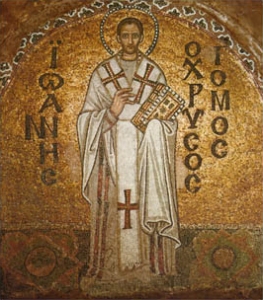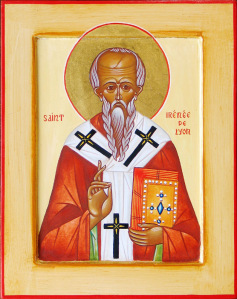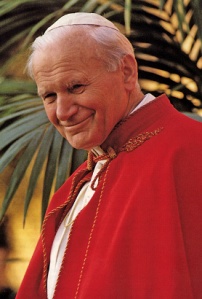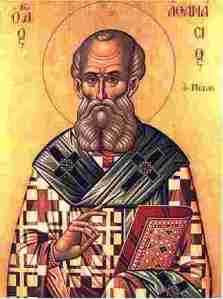 There is no small proof that death is destroyed, and that the Cross is become the victory over it, and that it has no more power but is verily dead.
There is no small proof that death is destroyed, and that the Cross is become the victory over it, and that it has no more power but is verily dead.
Rather there is an evident warrant – that it is despised by all Christ’s disciples, and that they all take an aggressive stance against it and no longer fear it.
Instead, by the sign of the Cross and by faith in Christ, they tread it down as dead.
For of old, before the divine sojourn of the Saviour took place, death was terrible even to the saints, and all wept for the dead as though they perished.
But now that the Saviour has raised His body, death is no longer terrible; for all who believe in Christ tread him under as nought, and choose rather to die than to deny their faith in Christ.
For they verily know that when they die they are not destroyed, but actually begin to live, and become incorruptible through the Resurrection.
And they know that the devil, that once maliciously exulted in death, now that its pains were loosed, remained the only one truly dead.
And a proof of this is: that, before men believe in Christ, they see in death an object of terror, and play the coward before him.
But, when they are gone over to Christ’s faith and teaching, their contempt for death is so great that they even eagerly rush upon it, and become witnesses for the Resurrection the Saviour has accomplished against it.
For while still tender in years they make haste to die, and not only men, but women also, exercise themselves by bodily discipline against it. So weak has death become, that even women who were formerly deceived by him, now mock at him as dead and paralyzed.
When a tyrant has been defeated by a real king, and bound hand and foot, then all that pass by laugh him to scorn, buffeting and reviling him, no longer fearing his fury and barbarity, because of the king who has conquered him.
So also, death having been conquered and exposed by the Saviour on the Cross, and bound hand and foot, all they who are in Christ, as they pass by, trample on him, and witnessing to Christ scoff at death, jesting at him, and saying what has been written against him of old:
“O death, where is thy victory? O grave, where is thy sting?”
Athanasius of Alexandria (c.293-373): On the Incarnation of the Word, 27 [slightly adapted].
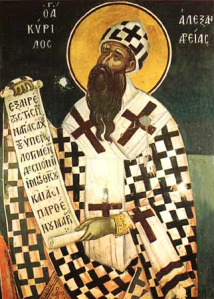 “So they took the Body of Jesus, and bound it in linen cloths with the spices, as the custom of the Jews is to bury. Now in the place where He was crucified there was a garden; and in the garden a new tomb, wherein was never man yet laid” (John 19:40-41).
“So they took the Body of Jesus, and bound it in linen cloths with the spices, as the custom of the Jews is to bury. Now in the place where He was crucified there was a garden; and in the garden a new tomb, wherein was never man yet laid” (John 19:40-41).